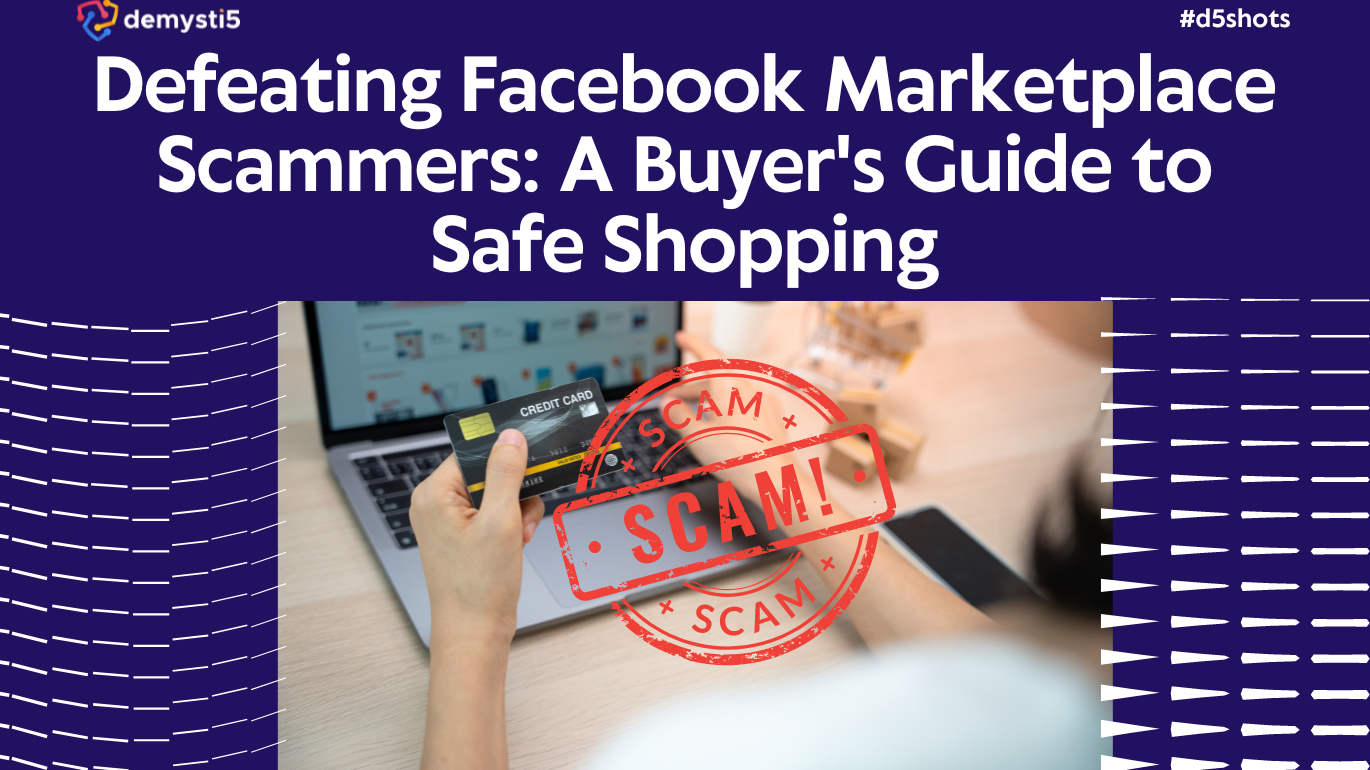Unmasking Facebook Scams: Protect Yourself from Deceptive Marketplace Schemes
In the bustling realm of online commerce, Facebook Marketplace stands as a virtual marketplace where buyers and sellers converge. Yet, amidst the convenience and opportunities, a lurking danger emerges – Facebook scams. These scams target the unwary, preying on their trust and financial security. We will dive into the world of Facebook Marketplace scams, unveiling their tactics, repercussions, and most importantly, how you can shield yourself from falling victim. Brace yourself for an informative journey into the darker side of online shopping.
The Buyer’s Beware: Unveiling Buyer-Centric Scams
1. The Phantom Seller: A Mirage of Trust
In this scam, you come across seemingly genuine sellers who advertise products at too-good-to-be-true prices. However, once payment is made, the seller disappears into thin air.
How It Works: Scammers create fake profiles, enticing you with irresistible offers. Once the payment is made, they vanish, leaving you empty-handed and defrauded.
Also Read
Over 31,000 Australian Bank Passwords Leaked: All You Need to Know and Do
- Published on: April 30, 2025
Massive X (Twitter) Data Leak Raises Major Online Safety Concerns
- Published on: April 2, 2025
Download the demysti5 | Online Safety App and follow us on digital and social media platforms
- Published on: March 10, 2025
How to Avoid the Scam:
- Research the seller’s profile and history.
- Prefer secure payment methods within Facebook Marketplace.
- Always insist on in-person meetings for high-value transactions.
2. The Temptation of Suspiciously Low Pricing
You encounter listings with prices far below market value, luring you into making impulsive purchases. However, these deals often prove too good to be true.
How It Works: Scammers exploit your desire for bargains, presenting enticingly low prices to trick you into making hasty decisions.
How to Avoid the Scam:
- Be cautious of deals that seem too good to be true.
- Research similar listings to gauge reasonable pricing.
- Verify the seller’s profile and reviews for authenticity.
3. Allure of Freebies and Giveaways
Scammers offer free items or giveaways to draw your attention. However, these offers are often a ploy to harvest your personal information or defraud you.
How It Works: You are lured by the promise of free products, only to find yourself entrapped in schemes demanding sensitive data or upfront payments.
How to Avoid the Scam:
- Be cautious of offers that seem too generous.
- Verify the legitimacy of the offer through official sources.
- Never share personal information or financial details for free items.
4. Disguised Faulty Items: The Perfect Scam
You unknowingly purchase defective or poor-quality items that are inaccurately described in listings.
How It Works: Scammers list items with false descriptions, enticing you to purchase goods that fail to meet your expectations upon arrival.
How to Avoid the Scam:
- Carefully read product descriptions and reviews.
- Ask for additional photos or information before making a purchase.
- Insist on a return policy in case the item is not as described.
5. The Mysterious Mailing Demand: A Red Flag
Scammers insist on mailing items to you, often demanding upfront payment before sending the goods. You are left with empty pockets and no merchandise.
How It Works: You pay in advance for items that are never delivered, as the scammer disappears after receiving payment.
How to Avoid the Scam:
- Avoid transactions that require upfront payment before receiving the item.
- Prefer face-to-face transactions or secure payment methods within Facebook Marketplace.
Also Read
Exploring the Metaverse: The Exciting (and Risky) World of Virtual Reality and Augmented Reality
about it
- Published on: February 11, 2023
Phishing Attacks: Understanding the Psychological Tactics Used to Trick You
- Published on: February 11, 2023
Inside the World of Cyber Criminals: Motives, Methods, and Targets
- Published on: February 12, 2023
6. The Rental Rip-off: A Twisted Lease Agreement
Scammers post fake rental properties, convincing you to make deposits for accommodations that don’t exist.
How It Works: You pay deposits or rent in advance for properties that are either nonexistent or unavailable.
How to Avoid the Scam:
- Insist on visiting the property in person before making any payments.
- Deal directly with property managers or established real estate agents.
7. The Communication Dilemma: Beyond Facebook Messages
Scammers request you to communicate outside of Facebook, often through email or messaging apps, to execute transactions.
How It Works: You are directed away from the platform’s security measures, exposing you to potential scams, phishing attempts, or fraudulent transactions.
How to Avoid the Scam:
- Keep all communications within Facebook Messenger for security.
- Avoid sharing personal information or payment details outside the platform.
Overall Recommendations:
- Thoroughly research sellers and products before committing to any purchase.
- Stick to secure payment methods offered within Facebook Marketplace.
- Be skeptical of unusually low prices or offers that seem too good to be true.
- Avoid sharing personal information, financial details, or engaging in transactions outside the platform.
The virtual realm of Facebook Marketplace offers convenience and opportunities, but it’s crucial to tread carefully and stay vigilant against the lurking threats of scams. By understanding the tactics employed by scammers, recognizing the red flags, and adhering to best practices, you can safeguard yourself from falling victim. Remember, knowledge is your armor in the digital marketplace – a shield against the deceptions that threaten to tarnish your online shopping experience. Stay informed, stay cautious, and let your journey through Facebook Marketplace be defined by security and smart choices
Stay informed, stay cautious, and spread awareness to keep your friends and family safe from Facebook scams!
Sign Up to improve your Digital Security Now!








